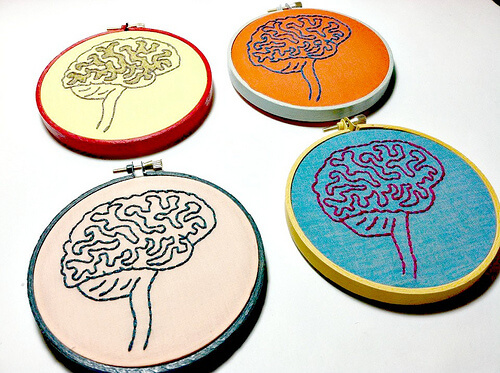7 Questions About Dreams


Written and verified by psychologist Valeria Sabater
The world of dreams has always been one of great interest, both for scientists as well as ordinary people. Some people believe they are an area of our unconscious that the brain uses to reorganize ideas and memories, and is an area for activity. There are many questions about dreams that you would like to have answered.
7 Questions About Dreams
1. Why don’t we remember all of our dreams?

We start the list of questions about dreams with everyone’s curiosity. You’ve gotten up quite a few times in the morning with the feeling of having dreamed something pleasant or unpleasant, but you just can’t remember the details of it. This is normal.
Dreams take place back to back without giving the brain time to cement the memory, just the emotion. That’s why you just have the sensation of anguish or pleasure.
It’s interesting, however, to know that people who wake up several times throughout the night are the ones that remember their dreams more. Why is that? It’s very simple; when the dream ends and you wake up, the dream cements the memory better. But if you continue to sleep, the memory doesn’t stick.
Read more: When Your Dreams Reflect Your Health
2. People react in their dreams as if they were awake

So that’s it. It’s almost like you could say that your personality continued being you with all your emotional intensity while you sleep. That means that if you get angry with someone in a dream, you will feel that anger with all your intensity. If you feel happy about seeing someone again, that emotion will be sincere. The same is true with fear during nightmares. Emotions are real in an imaginary world.
3. Smells influence dreams

If you’re in a room that smells bad, is moist, or smells like trash or any other unpleasant smell, your brain will immediately associate it with something unpleasant and will create a dream that is equally unpleasant or threatening.
On the other hand, if you decorate your room with something pleasant, like lavender or rose perfume, your sleep will be much deeper, calm and relaxing.
4. Dreams always have an origin

Dreaming that you’re being followed, that you fall, someone tries to hurt you or that you have an accident is a direct response to your worries, stress and anxiety.
During periods of great unrest or when you have a lot of stress and anxiety, your nightmares will be more recurrent. If you dream of being with someone already passed, it’s because in some way you are worrying or anxious about something, and you desire that person that has already passed, whom you miss, to give you some advice. Whenever you have a nightmare, try to find out why.
5. All living beings dream

Dogs, cats, rats, people and dolphins. All living beings dream. But this is particularly curious in terms of dolphins. Why? Cetaceans need to keep swimming in the ocean and stay afloat. If their brain remains unconscious, they end up drowning and could even die from not breathing. That’s why one side of their brain never rests.
6. And if I dream that I die?

A lot of people believe that dying in a dream is a bad omen, and that something bad is definitely waiting for them in the future. This is erroneous and has no grounds.
Authors like Rubin Neiman say that when this happens, we think about what causes it in our own dream, and we investigate. The brain always stores messages through dreamscape images, and the idea of seeing your own death could mean something specific. The need to end a chapter in your life? To admit something is over, a job, a relationship? Only you can know what it means.
Read more: The 3 Best Natural Remedies for Insomnia
7. The brain acts like the intestines at night

Undoubtedly a curious image. As we already know, the intestines are in charge of digesting and grabbing nutrients, and channelizing food.
The brain, on its end, does essentially the same thing at night. It digests experiences and lessons, and separates what is important, eliminating things that aren’t. It integrates our memory, it reorganizes it, and manages and filters information; this is something truly curious to keep in mind.
So remember, sleeping is a biologic necessity that you should not abandon. Take good care of your sleep habits with simple strategies. Eat dinner two hours before going to bed. Stop using your computer or phone an hour before going to bed because they act as stimulants. A relaxing bath is very useful. Sleep is a basic part of health, just like dreams.
Do you have other questions about dreams?
All cited sources were thoroughly reviewed by our team to ensure their quality, reliability, currency, and validity. The bibliography of this article was considered reliable and of academic or scientific accuracy.
- Freud, S. (1979). 4 La interpretación de los sueños. Sigmund Freud Obras Completas. https://doi.org/10.1080/10643389.2011.574115.
- Tirapu-Ustárroz, J. (2012). Neuropsicología de los sueños. Revista de Neurologia.
-
Schredl, M., & Doll, E. (1998). Emotions in diary dreams. Consciousness and cognition, 7(4), 634-646.
-
Nielsen, T. (2017). The stress acceleration hypothesis of nightmares. Frontiers in Neurology, 8, 201.
-
Manger, P. R., & Siegel, J. M. (2020). Do all mammals dream?. Journal of Comparative Neurology.
-
Tamaki, M., Bang, J. W., Watanabe, T., & Sasaki, Y. (2016). Night watch in one brain hemisphere during sleep associated with the first-night effect in humans. Current biology, 26(9), 1190-1194.
-
Eichenlaub, J. B., Nicolas, A., Daltrozzo, J., Redouté, J., Costes, N., & Ruby, P. (2014). Resting brain activity varies with dream recall frequency between subjects. Neuropsychopharmacology, 39(7), 1594-1602.
-
Schredl, M., Atanasova, D., Hörmann, K., Maurer, J. T., Hummel, T., & Stuck, B. A. (2009). Information processing during sleep: the effect of olfactory stimuli on dream content and dream emotions. Journal of sleep research, 18(3), 285-290.
-
Naiman, R., & Gustafson, C. (2015). Rubin Naiman, PhD: Sleep and the spectrum of consciousness–learning to love sleep and dreams. Advances in mind-body medicine, 29(1), 34.
This text is provided for informational purposes only and does not replace consultation with a professional. If in doubt, consult your specialist.








